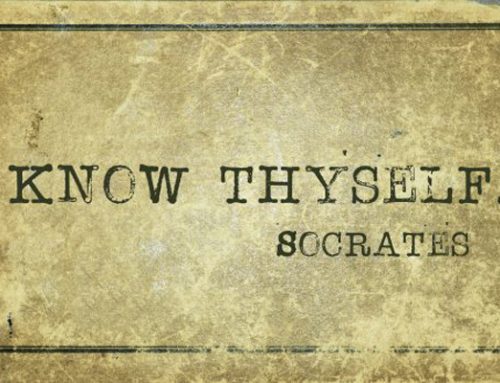Identity A gives rise to value B, gives rise to priority C, gives rise to behaviour D.

So, imagine a scenario where a father works long hours to the point where they don’t spend as much time with their children as they or their partner would like.
It would be easy to label someone like this as a workaholic or someone who sees their work as being more important than their children.
And I’m sure that that may be the case in some situations but not in every situation.
If we look at this hypothetical situation with the understanding that identities lead to certain values which lead to certain priorities which lead to certain behaviours and that each behaviour we chose is an attempt to solve a problem we can arrive to a very different perspective on this situation.
We can imagine a scenario where this father believes that a father ought to be someone who ensures financial stability and protection from financial uncertainty and all of its associated hardships. He identifies with this role and therefore VALUES work, however long, that enables him to SOLVE the problem of financial instability/uncertainty. He then PRIORITISES work which produces the BEHAVIOUR of long working hours as a means, again, of solving a problem.
This father may also consider the role of a father to be one where meaningful time is spent with his children BUT he may VALUE the provision of financial security more as a means of taking care of his children/family. BUT it doesn’t mean that he doesn’t care about spending time with them. Rather, his identity (father as provider) dictates his values (to be able to provide financially) which dictates his priorities (work) which shape his behavioural choices (working long hours)
This identity, value, priority narrative may also lead to other choices that run counter to outcomes he hopes for.
For example, getting in shape. The prioritisation of work and long work hours may mean that he doesn’t have the time or rather headspace to make better choices when it comes to his food/nutrition. If he is chronically stressed by his work and then turning to convenient (no added stress/planning involved as compared to meal prep), highly palatable, dopamine triggering foods is a no brainer. It’s going to be very difficult to get him to make better choices given that he more closely associates working with his identity of provider than he does making the time and effort to eat healthily. It’s just not a priority and trying to get himself to eat healthier because he ‘should’ just won’t cut it. Convenient, highly palatable foods are in themselves a solution to the problem of limited time and excess stress.
So, how can you get around this? It’s pretty pointless telling him to make better choices because it will help him to lose weight. That’s pretty meaningless in the grand scheme of things. You need to somehow frame the action of better food choices in such a way that brings it alongside the identity of “father as provider”.
You could do this by helping this father to arrive at a point where he understands, sees and believes that making better food choices would enhance his capacity to satisfy his identity of “father a provider”.
Bear in mind that this father believes that his role should be one where he provides for his family AND is emotionally available for them. BUT he is choosing to PRIORITISE financial provision over physical presence and emotional availability.
By demonstrating to him that making better food choices would lead to weight loss, better health, better sleep, REDUCED stress and that those improvements would mean he would work better, more efficiently, be more resilient to stress and AS A RESULT he would have more energy left over at the end of the work day/week for his family i.e. he would be more emotionally available you are framing the ACTION of better food choices in such a way that not only enhances his ability to satisfy his identity of ‘father as financial provider’ BUT ALSO enables him to begin to satisfy his identity of father as “emotionally available” parent.
So now, rather than being viewed as something else to add to existing stress and to consume more limited time (action perceived as another problem) making healthier food choices is now viewed as a solution to the problem of “how can I be BOTH financial provider AND emotionally available father.





Insightful article, Will. Self image is so powerful, and it can be a double-edged sword. There’s a brilliant book Psycho Cybernetics by Dr Maxwell Maltz which explores this concept.
Thanks Dominic, appreciate the comment! 🙏🏻